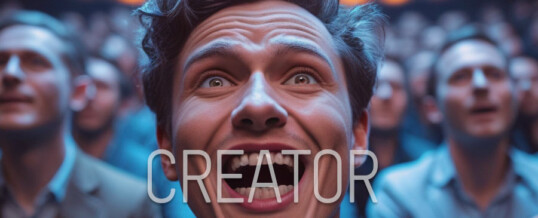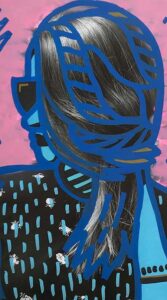
The digital creator economy has seen explosive growth in recent years, driven by the rise of social media, content marketing, and digital entrepreneurship. But with the rapid advancement of artificial intelligence (AI), a looming question arises: “Will AI replace human creativity?” In 2025, AI-generated content, virtual influencers, and deepfake marketing will be more sophisticated than ever, challenging digital creators to redefine their role in this evolving landscape.
The Rise of AI in Content Creation
AI tools have already transformed content creation across multiple platforms. From AI-driven writing assistants like ChatGPT to design tools such as Canva’s AI-powered features, automation is becoming deeply integrated into the creative process. AI-generated music, artwork, and even entire videos can now be produced in minutes, drastically reducing production time and costs.
Some of the most notable advancements in AI-driven content creation include:
- AI-Written Articles & Copywriting: Tools like Jasper AI and Writesonic can generate long-form blog posts and marketing copy in seconds.
- AI-Generated Art & Graphics: Applications such as MidJourney and DALL·E 2 allow creators to generate high-quality artwork without traditional design skills.
- Deepfake & Virtual Influencers: AI-powered influencers like Lil Miquela and virtual brand ambassadors are gaining real-world influence on social media.
- Automated Video Production: AI-driven video editing platforms like Pictory and Runway ML are making video content creation faster and more accessible.
With these capabilities, AI is no longer just a tool; it is becoming a competitor to human creators. But can it truly replace human creativity?
The Limitations of AI-Generated Content
While AI excels in speed, efficiency, and scalability, it has critical limitations when it comes to true creativity. Here’s where AI falls short:
1. Lack of Emotional Depth and Authenticity
Human creativity is deeply rooted in emotions, personal experiences, and cultural nuances. AI-generated content, while impressive, often lacks the emotional depth that connects with audiences on a human level. Authentic storytelling — driven by lived experiences and personal insights — is something that AI cannot replicate.
2. Originality vs. Pattern Recognition
AI is excellent at analyzing patterns and generating content based on existing data, but it struggles with true originality. Creativity often involves breaking conventions, thinking abstractly, and introducing new ideas. AI-generated content is inherently derivative, as it pulls from pre-existing data rather than innovating from scratch.
3. Ethical and Moral Judgment
Content creation involves making ethical decisions — whether it’s choosing a narrative angle, avoiding misinformation, or ensuring inclusivity. AI lacks human morality and can sometimes produce biased, misleading, or inappropriate content. Digital creators bring ethical judgment and cultural awareness that AI simply does not possess.
How Digital Creators Can Thrive Alongside AI
Instead of fearing AI, digital creators can “embrace and leverage AI tools” to enhance their creative process while maintaining their unique human touch. Here’s how:
1. Use AI for Efficiency, Not Replacement
AI can automate time-consuming tasks such as brainstorming ideas, generating outlines, and automating social media posts. Digital creators can use AI as a support system to “streamline workflows”, allowing them to focus more on strategy, creativity, and storytelling.
2. Prioritize Authenticity and Personal Branding
The most successful creators in 2025 will be those who build “strong personal brands” that AI cannot replicate. Audiences are drawn to creators for their unique voices, personalities, and perspectives. Content infused with “real-life experiences, emotions, and authenticity” will always have a competitive edge over AI-generated material.
 3. Leverage AI for Data-Driven Creativity
3. Leverage AI for Data-Driven Creativity
AI can provide valuable insights into audience behavior, content performance, and market trends. Creators who use AI-powered analytics to refine their strategies will have a **data-backed approach to engagement** while still driving creative innovation.
4. Emphasize Interactive and Experiential Content
AI-generated content can feel static and formulaic. Digital creators can differentiate themselves by focusing on “interactive, immersive, and experiential content” — such as live video, real-time engagement, and storytelling that invites audience participation.
5. Collaborate with AI, Don’t Compete Against It
The best approach for creators is to collaborate with AI rather than compete against it. By combining AI’s capabilities with human ingenuity, creators can push the boundaries of digital content. For example:
Writers can use AI-generated drafts as a starting point, then refine and personalize them.
Designers can use AI for ideation but infuse human creativity into the final product.
Marketers can automate repetitive tasks while focusing on strategic storytelling.
What’s Next for Digital Creators in 2025?
The digital creator economy will continue evolving, with new trends emerging in 2025 that will redefine how content is produced and consumed. Here are some key trends to watch:
1. The Growth of the Creator Economy 2.0
With the increasing saturation of digital content, creators will need to diversify revenue streams beyond traditional ads and sponsorships. Subscription models, memberships, NFTs, and direct audience monetization will become even more prominent.
2. The Rise of Decentralized Platforms
As concerns over content ownership and platform dependency grow, creators may shift towards Web3 and decentralized content platforms where they have greater control over their work, distribution, and monetization.
3. Hyper-Personalized Content Experiences
AI will enable highly personalized content recommendations, but digital creators must adapt by delivering customized and hyper-relevant content tailored to niche audiences.
4. AI-Ethics and Transparency Will Matter More Than Ever
As AI-generated content becomes more common, audiences will demand transparency. Creators who disclose AI usage and emphasize ethical storytelling will earn greater trust and credibility.
5. The Demand for Human Creativity Will Increase
Ironically, as AI-generated content floods the internet, the demand for human-led creativity, authenticity, and originality will rise. Creators who master the art of storytelling, emotional connection, and cultural relevance will be more valuable than ever.
Conclusion: Will AI Replace Digital Creators?
The short answer is no—but it will transform how content is created. AI will become an indispensable tool for digital creators, enhancing efficiency and providing insights, but it cannot replace human creativity, authenticity, and emotional depth.
In 2025, digital creators who adapt to this AI-driven landscape will not only survive but thrive. The key is to embrace AI as a collaborator, leverage its strengths, and focus on what makes human creativity truly irreplaceable: originality, ethical judgment, and meaningful storytelling.
The future belongs to those who innovate, adapt, and stay ahead of the curve. Will you be one of them?
About Reico
Reico is the owner and team member of The Applied VIsual, website design and development company. He is also available on Twitter @AppliedVisual
MAR
2025






